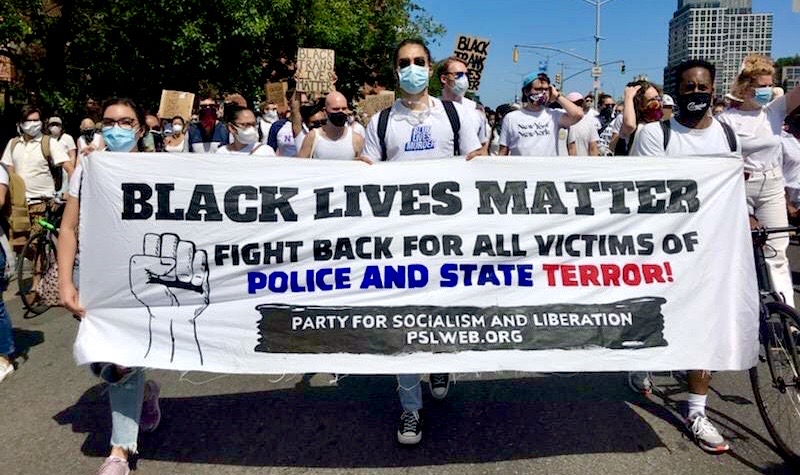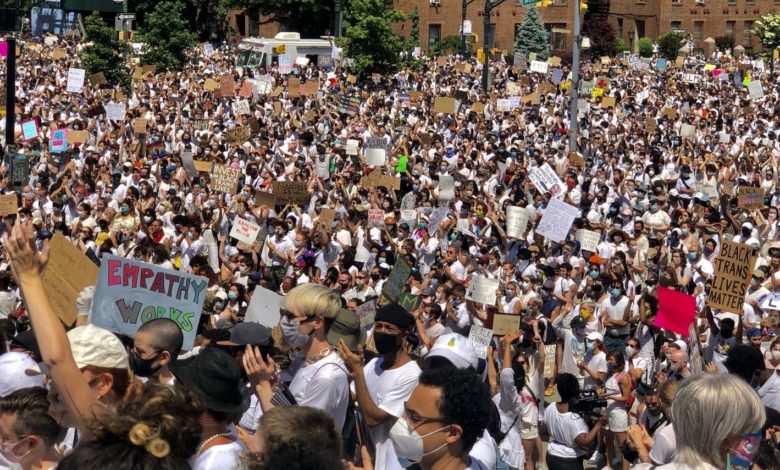
A powerful crowd of 15,000 protesters clad in white marched through Brooklyn, NY, on June 14 to defend Black Trans Lives in the wake of continued violence against the Black transgender community. It was undoubtably one of the largest demonstrations for transgender rights in history. The day before in Boston, several thousand also rallied for transgender rights at Franklin Park in the Roxbury neighborhood and marched through the city to Boston Police B-2 Headquarters.
The actions came just days after the Trump administration announced its intentions to roll back trans healthcare protections in the Affordable Care Act, and a New York Supreme Court ruled that protestors arrested at demonstrations could be denied bail. These decisions were meant to intimidate, but they only fueled the determination on the streets.
Members from the Party for Socialism and Liberation attended both the marches in solidarity with the Black trans community and to document this historic moment in the struggle for Black trans lives.
The mostly queer and trans crowd moved through downtown Brooklyn and assembled at a rally outside of the Brooklyn Museum. They wore white to connect their struggle to a 1917 march organized by the NAACP where thousands dressed in white protested a wave of racist killings. The march was organized by Black trans women’s organizations, including the Okra Project, which offers free food to Black trans people; Gays and Lesbians Living in a Transgender Society, which offers housing to Black trans people; For the Gworls, an organization which raises funds for Black trans women’s food and housing needs; the Marsha P. Johnson Institute; and Black Trans Femmes in the Arts.
The huge event was organized on just a few weeks notice. The cancellation of Heritage Pride’s consumer-driven Pride month events in New York due to the COVID-19 pandemic left a space for groups to organize actions more representative of community needs.
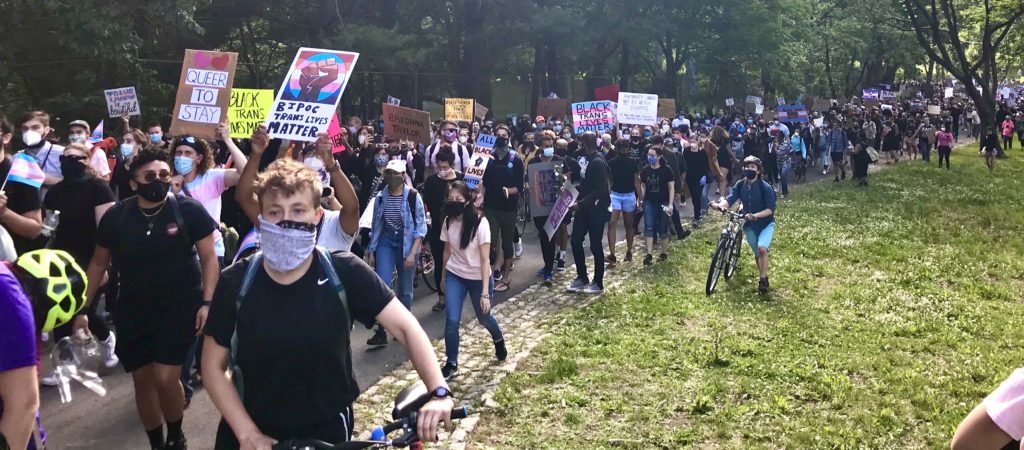
In Boston, attendees remarked that the crowd was one of the most diverse they had ever seen at a local protest. The demonstration was called by new local trans rights organization Trans Resistance with speakers from the Transgender Emergency Fund of Massachussets, the only organization that is dedicated to supporting low income and homeless transgender people in Massachusetts.
The crowds in both cities uplifted the names of transgender people who were the victims of anti-transgender violence including Tony McDade, a transgender man killed in a recent police shooting in Tallahassee, Florida and Nina Pop, a transgender woman who was killed in a racist and transphobic hate crime in Sikeston, Missouri. Further fueling anger was the murder of two more Black trans women, Dominique Rem’mie Fells and Riah Milton, just days before the action. These deaths were widely reported on social media but not on the mainstream news.
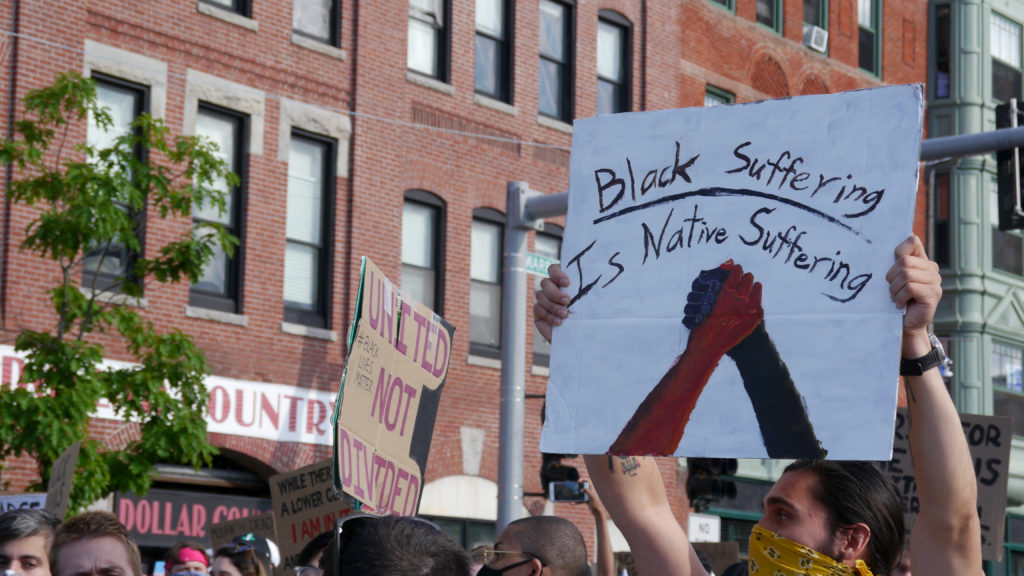
The sister of Layleen Cubilette-Polanco Xtravaganza spoke at the Brooklyn Museum rally. Polanco, a Black Trans woman, died on June 7, 2019, in the Rose M. Singer Center, part of New York City’s notorious Riker’s Island jail complex. Her sister, while lamenting that Layleen is no longer able to fight for herself, praised the demonstration. “This is what it’s all about: us standing together, and every time they knock one of us down, we come strong.”
New York City Department of Investigation ruled on June 5 that correctional officers were not criminally responsible for Polanco’s death. Her sister explained, however, that a video has recently surfaced showing that the death of Polanco in jail was preventable. Polanco, who was epileptic, was left alone in solitary confinement for 47 minutes, despite requirements that correctional officers check in on solitary inmates every 15 minutes.
Massachusetts also has a long history of anti-Black and anti-transgender violence. Terrence Coleman, Usaamah Rahim, Burell “Bo” Ramsey White, Denis Reynoso and many more have been murdered by police in the state. It was Rita Hester’s murder in Allston, Massachusetts that sparked the first Transgender Day of Remembrance only two days later on Nov. 20, 1998. Hester’s murder was the last of three high-profile murder cases of Black trans women in Massachusetts, following Chanelle Pickett in Watertown (1995) and Monique Thomas in Dorchester (1998). TDoR vigils are now held every year in November across the globe.
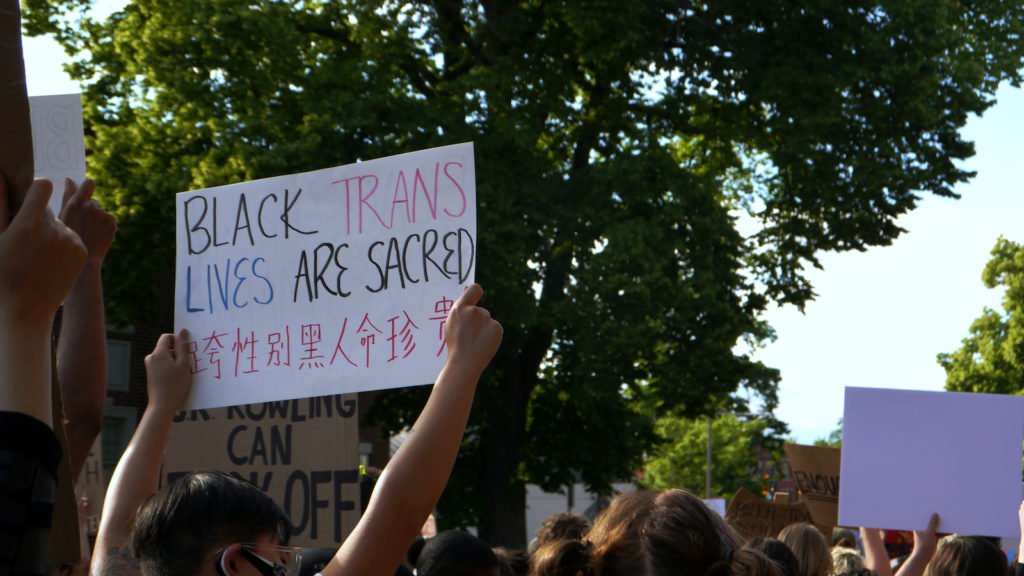
Since the first day of 2019, 40 trans people have been killed in both solved and unsolved homicide cases in at least 34 cities, 15 states, Washington DC and Puerto Rico. Of the 40 trans people murdered in the past year and half, over half were Black and nearly three-fourths were women.
“It’s bad. Transphobia has always been present in Boston, but it’s definitely been on the rise in the past few months,” Levi Cain, a butch resident of Allston-Brighton, told Liberation News. “An acquaintance of mine was recently attacked at their place of work. They’re a trans woman. I myself have been occasionally followed by people near to my apartment, and dealt with questions as to what my genitals are, what my gender is, and it’s been a really bad experience every time.”
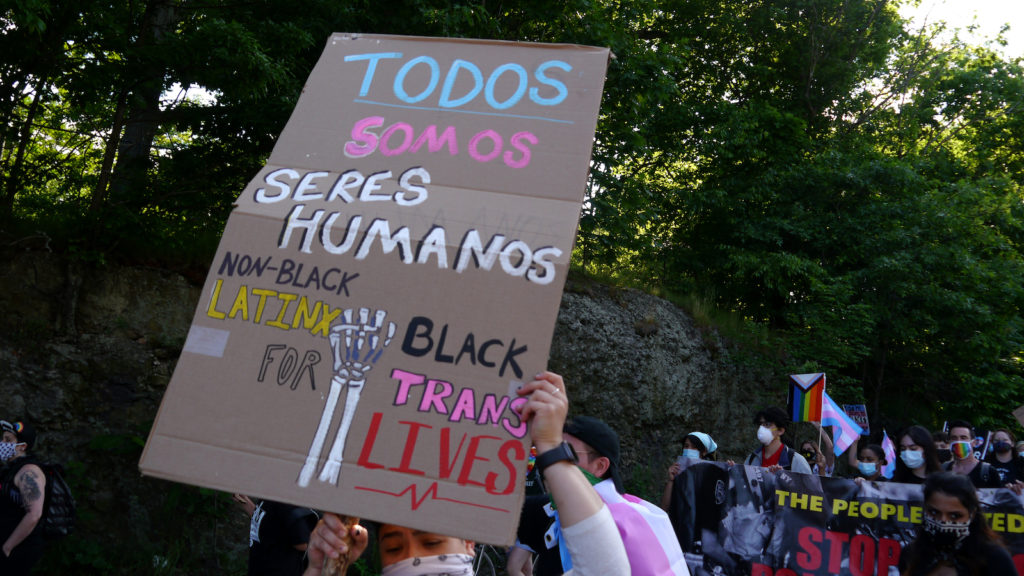
Mandy Wilkens, a Boston organizer who co-chaired the 2019 Trans Day of Remembrance planning committee, also spoke with Liberation News: “It’s not just the Trump administration, it’s pretty much all administrations. They’ve always threatened to get rid of trans rights…they know we’re a vulnerable population and they can bolster support that way…. [but] we have mass support, this is a movement…. Queers have been marching alongside police brutality struggles, the immigration struggle…. There’s no Pride, there’s no trans liberation, there’s no queer liberation until we have Black liberation.”
At the end of the Boston march, organizer Athena Vaughn stood in front of the Roxbury police station before a diverse crowd of thousands, and said, “Look around you. This is what tomorrow looks like.”
A few days after the march, Trans Resistance organizers announced they reached their goal of raising $100,000 to build a new shelter for transgender people in Massachusetts.
